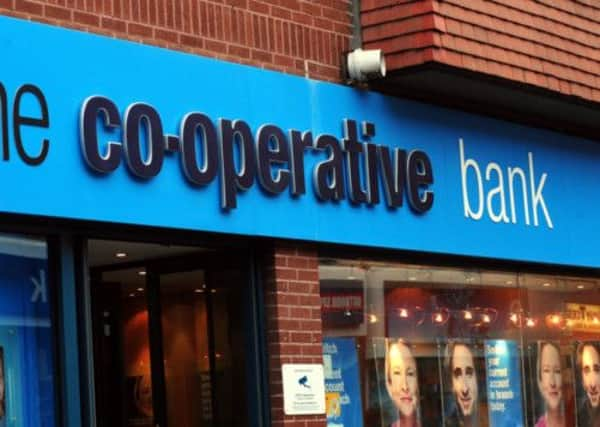Co-op says it will not need bail-out after rating blow


In a message to reassure customers and members, the Co-op said “we haven’t sought nor do we need government support” and insisted it was taking action to strengthen its bank’s balance sheet.
A downgrade from Moody’s on Thursday night saw Co-op Bank’s investment grade rating slashed to “junk” status – followed just hours later by yet another blow as the lender’s chief executive Barry Tootell resigned.
Advertisement
Hide AdAdvertisement
Hide AdHe had been brought in to lead the group’s failed deal to take over more than 600 branches from Lloyds Banking Group.
The group has been at the centre of intense speculation over its financial strength after pulling out of the bid, which is thought to have collapsed as the Co-op Bank struggled to fill a £1bn shortfall in its reserves to cushion against potential future crises.
It has been working to address this with the disposal of assets, such as its life insurance and asset management arm to Royal London and plans to sell its general insurance business.
But Moody’s said that the bank’s capacity to absorb future losses was now too low to support an investment grade rating following hefty losses after rising bad debts and costs linked to its takeover of Britannia Building Society in 2009.
Advertisement
Hide AdAdvertisement
Hide AdMoody’s added it may need “external” support and said there was “moderate potential for systemic support likely to be forthcoming from the UK authorities”.
Moody’s said the Co-op under-estimated the risks of the Britannia acquisition, especially against the backdrop of weak economic conditions.
It also calculated that the Co-op’s “problem loan ratio” had increased to 10.9 per cent at the end of 2012 from 8.1 per cent in 2011, reflecting a deterioration in its commercial property portfolio.
It said: “Moreover, the bank’s ability to generate the earnings needed to replenish capital, if higher losses materialise, is diminished by its slow progress in realising merger-related revenue and cost benefits.”
Advertisement
Hide AdAdvertisement
Hide AdThe Co-op said it was disappointed by the downgrade, but stressed it had a “clean plan” to bolster its financial strength. It said: “We have a strong funding profile and high levels of liquidity, which are significantly above the regulatory requirements.
“We do acknowledge, like the rest of our banking sector peers, the need to strengthen our capital position in light of the broader economic downturn and the pending introduction of enhanced regulatory requirements, and we have a clear plan to drive this forward throughout the coming months.”
It said Mr Tootell had been replaced on an interim basis by Rod Bulmer, who joined the bank six years ago from Santander.